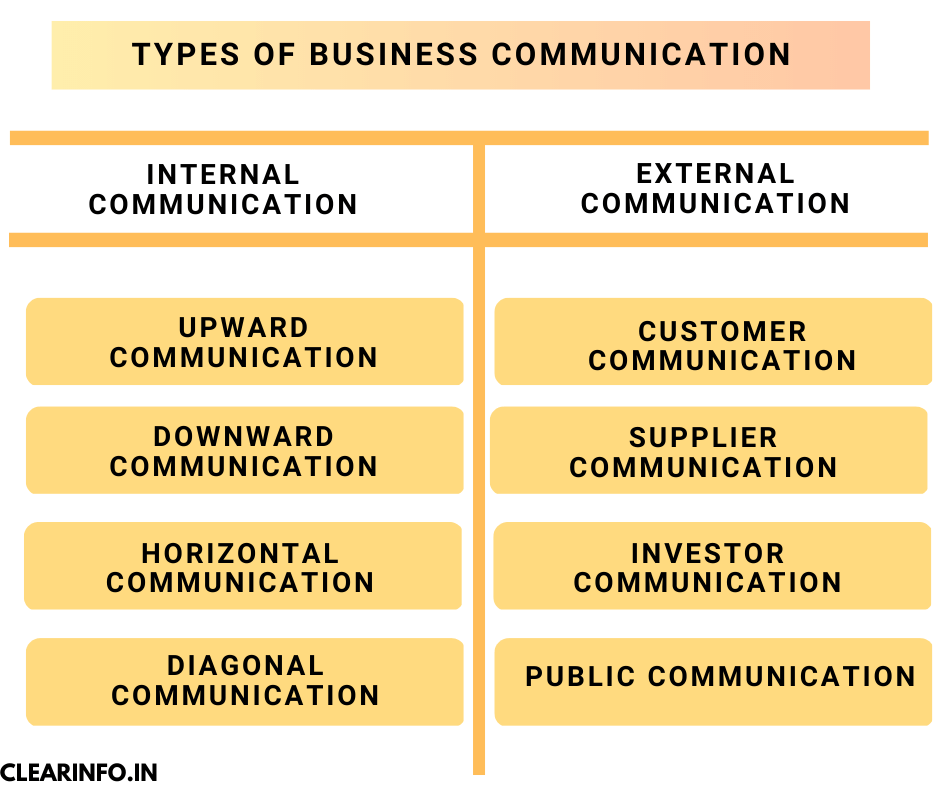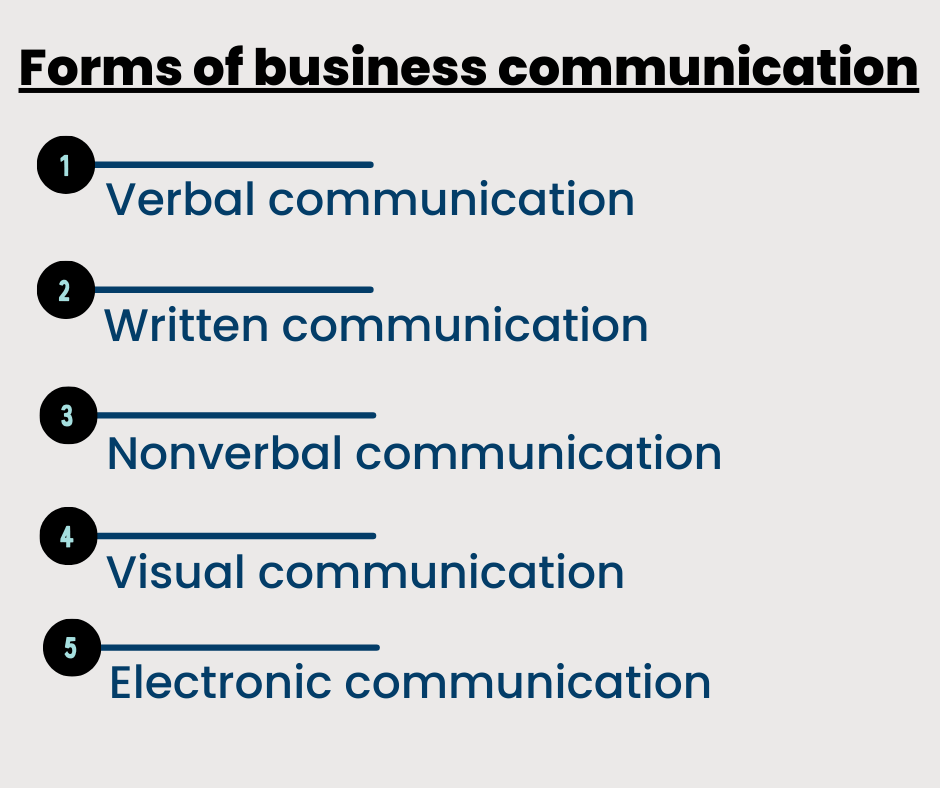Whether you’re a business owner, manager, or team member, strong communication skills are essential to achieving your goals and advancing your career. In this blog post, we will explore the importance of business communication in business, from enhancing productivity and fostering innovation to building stronger relationships and achieving success.
Overview of effective business communication
Effective Business communication is critical to the success of any organization, it involves several salient features that need to be taken into account for effective communication.
Business communication promotes individuals and teams to share ideas, coordinate tasks, build relationships, and achieve their goals. It involves the use of clear, concise, and persuasive language to convey ideas, opinions, and information to others.
When it comes to effective communication in a business environment, there are several crucial factors that need to be taken into account. These include using clear and concise language, active listening, respectful tone, tailored communication, timely and consistent communication, and positive feedback.
Need for business communication
Business communication is the key to building relationships, coordinating tasks, and achieving goals. Lack of adequate communication can result in misunderstandings that can lead to reduced productivity, missed chances, and impaired relationships.
In today’s fast-paced business world, effective communication has become more critical than ever, as teams and individuals work remotely and collaborate across multiple locations and time zones. Therefore, it is crucial for businesses to invest in developing and implementing effective communication strategies to ensure their continued success.
Why business communication is important
As discussed above, effective business communication is crucial in the workplace, where teams need to work together to achieve their objectives.
The objectives of communication in business include exchanging information, cooperating on projects, addressing issues effectively, and ultimately enhancing productivity and achieving superior results.
In fact, a more recent report from McKinsey on the outlook of remote work highlights a similar point, indicating that workers who feel more involved in communication within the workplace are nearly five times more likely to report a rise in their productivity.
Effective communication is also necessary for making informed decisions. In the present-day business landscape, decision-makers must have access to precise and current information to make well-informed decisions. Clear and concise communication is essential to ensure that all stakeholders have the necessary information to make the right decisions.
Moreover, business communication is crucial in situations where conflicts may arise. Through the use of respectful and empathetic communication, it is feasible to resolve conflicts and foster stronger relationships with both colleagues and clients.
10 Importance of business communication in points
1/ Building a strong brand: Businesses can establish a unique and identifiable brand identity by means of effective communication, which can not only set them apart from their competitors but also foster a strong emotional bond with their target audience. This can be achieved by effectively conveying their values, mission, and vision, resulting in increased customer loyalty and retention.
2/ Boosting productivity: Clear communication not only reduces confusion and misunderstandings but also helps employees prioritize their tasks and manage their time effectively. In fact, as per CMSWire, nearly 97% of employees consider that communication plays a significant role in their ability to complete tasks effectively on a daily basis. When everyone understands their role in the team and the overall goals of the organization, they can work more efficiently and make better use of their resources.
3/ Making informed decisions: Business communication provides not only the necessary information but also different perspectives and opinions that help decision-makers make more informed choices. Effective communication channels such as meetings, business communication reports, and feedback systems enable organizations to gather and analyze data, consider various options, and make decisions that align with their strategic objectives.
4/ Resolving conflicts: Communication is crucial in resolving conflicts as it helps individuals understand each other’s perspectives and find common ground. Effective communication skills such as active listening, empathy, and assertiveness help to prevent conflicts from escalating and foster an environment of mutual respect and cooperation.
5/ Improving customer service: Effective communication with customers involves not only understanding their needs and expectations but also proactively seeking feedback and addressing their concerns. By providing personalized and timely communication, organizations can create a positive customer experience, which leads to increased satisfaction and loyalty.
6/ Building a positive image: Communication is a powerful tool for building a positive image as it allows organizations to showcase their strengths and successes, address negative feedback, and respond to crisis situations. By communicating transparently and authentically, organizations can earn the trust and respect of their stakeholders and enhance their reputation in the market.
7/ Facilitating innovation: Communication plays a vital role in facilitating innovation by encouraging employees to share their ideas and perspectives. Effective communication channels such as brainstorming sessions, workshops, and online platforms help to generate creative solutions and foster a culture of continuous learning and improvement.
8/ Improving employee engagement: Effective communication not only helps employees understand their role in the organization but also creates a sense of community and belonging. In fact, an engaged employee is 15% more productive for an organization. Therefore organizations can improve employee satisfaction and retention by offering consistent feedback, acknowledgment, and chances for personal and professional development.
9/ Managing change: Communication is critical in managing change as it helps to prepare employees for the transition and mitigate resistance to change. Effective communication strategies such as town hall meetings, newsletters, and training programs help to ensure that everyone is informed, engaged, and supportive of the change process.
10/ Ensuring compliance: Communication is essential in ensuring compliance with laws, regulations, and policies as it helps to disseminate relevant information, and monitor adherence. By providing training and awareness programs, organizations can ensure that their employees understand their obligations and act in accordance with the law.
Overall, organizations that prioritize the importance of business communication in an organization are better equipped to adapt to changing circumstances, build strong and lasting relationships, and achieve their goals. By investing in communication skills and strategies, businesses can unlock their full potential and thrive in today’s dynamic and competitive business environment.
Significance of business communication ethics
Business communication ethics refers to the set of principles and values that guide how businesses communicate with their stakeholders, including customers, employees, suppliers, shareholders, and the community at large. Here are some reasons why business communication ethics are significant:
- Building trust: Ethical business communication helps build trust with stakeholders. As a result, there can be a rise in customer loyalty, repeat business, and favorable customer referrals.
- Maintaining reputation: Ethical communication also helps businesses maintain a positive reputation. Avoiding miscommunication that can quickly go viral and damage a company’s reputation.
- Fostering employee morale: Ethical communication also fosters employee morale. This can result in a boost in job satisfaction, productivity, and retention of employees.
- Enhancing decision-making: Ethical communication also enhances decision-making. When businesses communicate ethically, they are more likely to gather accurate and reliable information.
- Ensuring legal compliance: Ethical communication also ensures legal compliance. By communicating ethically and transparently, businesses can ensure that they are complying with laws and regulations, avoiding legal liability.
Further Reading: Role of ethics in business communication
Relevance of channels in business communication
Channels of communication are crucial in any business setting. Channels refer to the various ways in which information can be transmitted and received within an organization. Here are some reasons why channels are relevant in business communication:
- Meeting audience preferences: Different people have different communication preferences, For example, younger audiences may prefer to receive information via social media, while older audiences may prefer traditional channels such as email or phone calls.
- Ensuring effective communication: Using the right channels can ensure effective communication. For example, certain types of information may be better communicated in person or via video conferencing, while others may be better suited for email or written memos.
- Managing crises: Channels are also important in managing crises. During a crisis, it is important for businesses to communicate quickly and effectively with their stakeholders. Using multiple channels, such as email, social media, and press releases, can help ensure that stakeholders receive timely and accurate information.
What are the important types of business communication
There are several important types of business communication, both internal and external. Let’s explore them in more detail:

Internal Communication:
1/ Upward Communication: This refers to communication that flows from employees to their managers or higher-ups. It can include feedback, suggestions, and reports on work progress.
Must Read: What is Upward Communication: Examples, Objectives & Methods
2/ Downward Communication: This refers to communication that flows from managers or higher-ups to their subordinates. It can include instructions, feedback, and goals.
Must Read: What Is Downward Communication: Examples, Types & Objectives
3/ Horizontal Communication: This refers to communication that takes place between employees at the same level within an organization. It can include sharing information, coordinating work, and resolving issues.
Must Read: What is Horizontal Communication: Examples, Types & Advantages
4/ Diagonal Communication: This refers to communication that takes place between employees at different levels and in different departments. It can include sharing information, seeking guidance, and collaborating on projects.
Must Read: What Is Diagonal Communication: Examples, Advantages & Features
External Communication:
1/ Customer Communication: This refers to communication with customers, including sales pitches, customer service, and marketing messages.
2/ Supplier Communication: This refers to communication with suppliers, including procurement, contract negotiations, and delivery schedules.
3/ Investor Communication: This refers to communication with investors, including financial reporting, shareholder meetings, and updates on company performance.
4/ Public Communication: This refers to communication with the public, including press releases, social media updates, and community outreach. Each type of communication serves a specific purpose and is important for the success of an organization.
Forms of business communication
Each form of communication serves a specific purpose and can be used to convey messages in different ways. By utilizing a variety of forms of communication, businesses can effectively communicate with their stakeholders and achieve their goals. There are several forms of business communication, including:  1. Verbal communication: This comprises in-person discussions, telephonic communication, and video conferencing.
1. Verbal communication: This comprises in-person discussions, telephonic communication, and video conferencing.
Related Reading: Advantages & Disadvantages of Verbal Communication in Points
2. Written communication: This includes emails, memos, business reports, and letters.
Related Reading: What is Written Communication: Definition, Examples & Skills Advantages And Disadvantages of Written Communication With Examples
3. Nonverbal communication: This includes body language, tone of voice, and facial expressions.
Related Reading: Advantages And Disadvantages Of Non-Verbal Communication With Examples
4. Visual communication: This includes graphics, images, and videos.
Related Reading: Advantages and Disadvantages of Visual Communication
5. Electronic communication: This includes instant messaging, social media, and online forums. Interpersonal communication: This includes communication between individuals, such as networking and relationship-building.
What are the 7Cs of business communication?
The 7Cs of business communication represent a collection of guidelines that can assist in directing successful business communication. They are:
1/ Clear: It is important that the message is simple and straightforward, avoiding any technical language or jargon that might cause confusion among the audience.
2/ Concise: The business message should be concise and to the point. Avoid unnecessary details that may distract the audience from the main message.
3/ Complete: The communication should be complete and include all relevant information. Ensure that the audience has all the information they need to understand the message.
4/ Correct: The business conversation should be accurate and free from errors. Double-check all facts and figures before communicating the message.
5/ Coherent: The message should be organized logically. Ensure that the message flows logically and is easy to follow.
6/ Courteous: Business communication should be respectful and considerate of the audience. Avoid using language that may offend or upset the audience.
7/ Convincing: The message should be persuasive and convincing. Use evidence and examples to support the message and make a compelling argument.
Must Read: Check out our detailed guide on what is 7C’s in business communication
The significance of effective communication in business
A study by Watson Wyatt Worldwide found that companies with effective communication practices had a 47% higher total return to shareholders compared to companies with poor communication practices. Therefore effective communication is a cornerstone of success in any business.
It is the means by which information is exchanged between individuals, departments, and even organizations. Communication is more than just the transmission of information; it encompasses both the sending and receiving of messages and how they are interpreted. In the business world, effective communication can have a significant impact on the success or failure of an organization.
It can affect productivity, collaboration, customer satisfaction, and the bottom line. One of the primary significance of effective communication in business is increased productivity. When employees are able to communicate clearly and efficiently, they can work more efficiently, minimize errors, and avoid misunderstandings.
Moreover, effective communication is essential for successful customer relations. In business, clients want to feel that their needs are understood and addressed promptly. Good communication ensures that clients receive accurate and timely information, which helps to build trust and credibility.
This, in turn, leads to increased customer loyalty, satisfaction, and repeat business. In conclusion, effective communication is a crucial component of a successful business. It fosters clarity, collaboration, trust, and customer satisfaction, all essential for achieving organizational goals.
Business communication skills for effective business management
1/ Active listening: The ability to listen and understand what others are saying
2/ Clarity and conciseness: Being clear and concise in your communication
3/ Writing skills: Strong writing skills to convey professionalism and attention to detail.
4/ Verbal communication: Effective verbal communication skills for being respectful and attentive to others.
5/ Nonverbal communication: Nonverbal cues such as body language, facial expressions, and tone of voice
6/ Emotional intelligence: The skill to identify and regulate emotions.
7/ Negotiation skills: Negotiation skills to reach mutually beneficial agreements.
8/ Time management: Good time management for prioritizing your communication tasks and scheduling.
Why is it important to improve your business communication skills
As a business professional, improving your communication skills is essential, and there are several business communication guides that can help you achieve this.
Firstly, it helps you build strong relationships with clients, colleagues, and other stakeholders, which can lead to increased collaboration, trust, and better business outcomes.
Additionally, good communication skills can help you navigate conflicts and disagreements professionally and constructively, resulting in mutually beneficial outcomes.
Must Read: 10 Business Communication Skills With Tips on How to Improve
Examples of successful businesses that prioritize communication
One such company is Zappos, an online shoe and clothing retailer. Zappos is known for its exceptional customer service, which is built on a foundation of effective communication.
The company places a high value on clear and open communication between employees and customers, and they have even developed their own unique communication style called “Zappos Speak.” This approach emphasizes empathy, understanding, and personalized service, all of which contribute to the company’s success.
Another example is, Airbnb, a company that has revolutionized the travel industry by connecting travelers with unique and affordable accommodations.
Communication is key to Airbnb’s success, as it relies on clear and effective communication between hosts and guests to ensure a positive experience for everyone involved. In summary, Zappos, and Airbnb are just a few examples of successful businesses that prioritize communication.
Frequently Asked Questions
1. What is the importance of business communication?
Ans: The importance of business communication lies in its ability to facilitate the exchange of information, ideas, and feedback between individuals and groups within an organization. Effective business communication can lead to better relationships, increased productivity, improved workflow, and greater success in achieving business goals.
2. What are the 7 importance of communication in business?
Ans: The 7 importance of communication in business include building relationships, enhancing productivity, avoiding misunderstandings, building credibility, managing conflicts, facilitating decision-making, and achieving business goals.
3. What are the 5 importance of communication?
Ans: The 5 importance of communication includes facilitating the exchange of ideas and information, building relationships, fostering collaboration, increasing understanding, and achieving shared goals.
4. What is the most important goal of business communication?
Ans: The most important goal of business communication is to achieve shared understanding and agreement among individuals and groups within an organization. This can be accomplished through effective communication that is clear, concise, and tailored to the needs of the audience.




